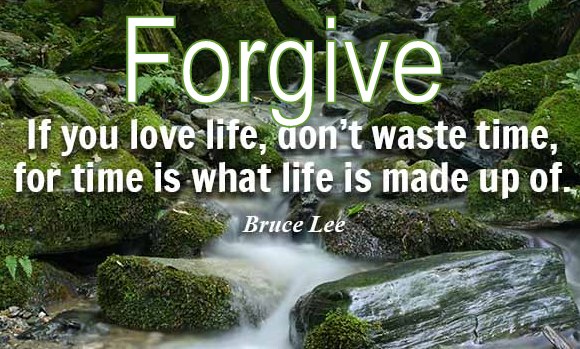A LESSON IN APOLOGIES
“I’m sorry, please forgive me.”
“NO! I will not forgive you and I don’t accept your apology!”
“Then forget it, I’m not sorry! I take back my apology!”
How often do we hear these words exchanged between two people? How many times in our own lives has this been our own words?
For this lesson we are focusing on the dynamics between two individuals where one has offended the other - the words “I am sorry” convey a genuine remorse or sorrow for something that is done or said to another person which caused pain (emotional and/or physical.
Genuine, real, true, heartfelt - these are all words that describe the intention behind an apology. Empathy, remorse, personal accountability, acknowledgment of the consequences of our actions or words; this is what informs us of our errors and leads us to seek resolution between ourselves and whomever we have personally offended.
To offer an apology is to offer yourself up to the injured one(s) and lay open your own vulnerabilities in order to right the wrong. It is humbling, no doubt. However, the reward is in acknowledging your own faults to yourself and to others, and healing your own wounds as well as possibly healing the one you have injured.
Here’s where we get lost – we expect that once we have swallowed our pride and offered an apology for our actions/words, the injured party will immediately accept this and everyone is happy to move on.
NOT SO FAST!
YOUR APOLOGY IS INDEPENDENT OF OUTCOME
That’s right!
If the injured party does not accept your apology, it does not negate the apology (assuming it was genuine, real, true and heartfelt).
You see, making an apology is your choice. There are many who feel badly for things they have said and done but never make it to the actual “offering” of an apology to the injured. Taking that extra step requires a level of conscience, of personal dignity, of honorability and selflessness. Good for you if you can reach the point of offering an apology and take responsibility for your actions if they have hurt someone.
But, when the injured party says they aren’t interested in accepting the apology or are not forgiving of your actions or words – this becomes their choice, independent of your choice to offer reconciliation. The act of forgiveness is independent of the act of contrition.
If your apology hinges on receiving forgiveness then your apology is coming from a selfish place, not a selfless one!
Assuming you did something or said something that hurt someone if you come to understand this transgression and are willing to atone for it, then it does not require acceptance and/or forgiveness to be validated. This is your moment of clarity. This is your moment of correction. This is your moment of balance. You do this alone.
A LESSON IN FORGIVENESS
Just as the one who asks for forgiveness stands alone in his/her moment of atonement – you too, stand alone in your extension of forgiveness.
Forgiveness does not require an apology.
An apology does not require forgiveness.
Each stands on its own merit.
Each draws from a separate source.
Each provides a different type of peace.
Each is whole unto itself – not a part of the other to be complete.
Here is how that opening dialogue should have gone:
“I am sorry, please forgive me.”
“NO! I will not forgive you and I don’t accept your apology!”
“I am sorry for what I have done or said that hurt you. I can accept that you refuse to forgive. I am still very sorry for hurting you.”
And just as the above is perfect in its intention, so is the following:
“Though I have never gotten an apology, I forgive him/her.”
“Why would you forgive someone who can’t say they are sorry?”
“…Because forgiveness is my choice. It has nothing to do with the apology – that would be their choice; their journey.”
WHILE OTHERS CAN SUPPORT YOU THROUGH HARD TIMES –
EMOTIONAL HEALING IS PERSONAL – IT REQUIRES NOTHING
FROM WITHOUT AND EVERYTHING FROM WITHIN.
M Teresa Clayton






No comments:
Post a Comment